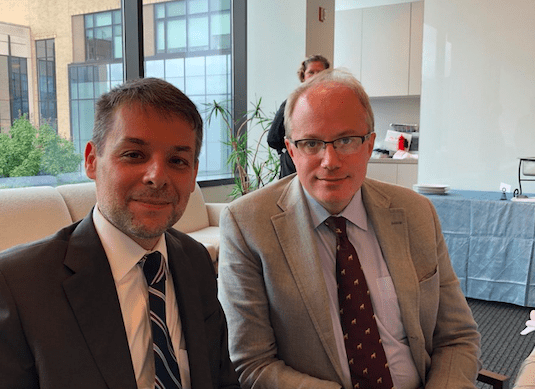Karlysymon
Superstar
- Joined
- Mar 18, 2017
- Messages
- 7,324
Some quotes
“Authoritarianism in religion and science, let alone politics, is becoming increasingly accepted, not particularly because so many people explicitly believe in it but because they feel themselves individually powerless and anxious. So what else can one do…except follow the mass political leader…or follow the authority of customs, public opinion, and social expectations?” ~Rollo May, Man’s Search for Himself
"Here we arrive at the heart of Schmitt’s vision for the future of the Church and its role in a society increasingly dominated by technical rationality. Schmitt’s prediction is that such a society would eventually consume and destroy itself; and a central thesis of the book as a whole is that our liberal-technical society is itself just such a society.
Schmitt is unfortunately vague on the precise mechanisms of self-destruction. But from the larger context of his thought we can extrapolate to fill in the remainder of the picture. The state becomes overrun by rent-seeking interests and a depoliticized managerial politics, while citizens relapse into a kind of apathetic and hedonistic privacy, dominated by consumerism and a consumerist approach to political life. At a certain point, however, the thinness of the regime’s claim to loyalty, and the accelerating pace and increasing burdens of relentless creative destruction, jointly become intolerable. The sheer plasticity and restless liberationism of the regime exceed the populace’s appetite for freedom, and a kind of rebellion against the principles of the regime itself will occur. The populace craves the return of “strong gods” (in R. R. Reno’s phrase) and summons them. It is not impossible to discern the beginnings of such a process in our own era, as Reno indeed does. The economic-technical state ultimately turns out to be self-undermining, because it rests upon a defective psychology and anthropology. "~Adrian Vermeule
“Authoritarianism in religion and science, let alone politics, is becoming increasingly accepted, not particularly because so many people explicitly believe in it but because they feel themselves individually powerless and anxious. So what else can one do…except follow the mass political leader…or follow the authority of customs, public opinion, and social expectations?” ~Rollo May, Man’s Search for Himself
"Here we arrive at the heart of Schmitt’s vision for the future of the Church and its role in a society increasingly dominated by technical rationality. Schmitt’s prediction is that such a society would eventually consume and destroy itself; and a central thesis of the book as a whole is that our liberal-technical society is itself just such a society.
Schmitt is unfortunately vague on the precise mechanisms of self-destruction. But from the larger context of his thought we can extrapolate to fill in the remainder of the picture. The state becomes overrun by rent-seeking interests and a depoliticized managerial politics, while citizens relapse into a kind of apathetic and hedonistic privacy, dominated by consumerism and a consumerist approach to political life. At a certain point, however, the thinness of the regime’s claim to loyalty, and the accelerating pace and increasing burdens of relentless creative destruction, jointly become intolerable. The sheer plasticity and restless liberationism of the regime exceed the populace’s appetite for freedom, and a kind of rebellion against the principles of the regime itself will occur. The populace craves the return of “strong gods” (in R. R. Reno’s phrase) and summons them. It is not impossible to discern the beginnings of such a process in our own era, as Reno indeed does. The economic-technical state ultimately turns out to be self-undermining, because it rests upon a defective psychology and anthropology. "~Adrian Vermeule


















